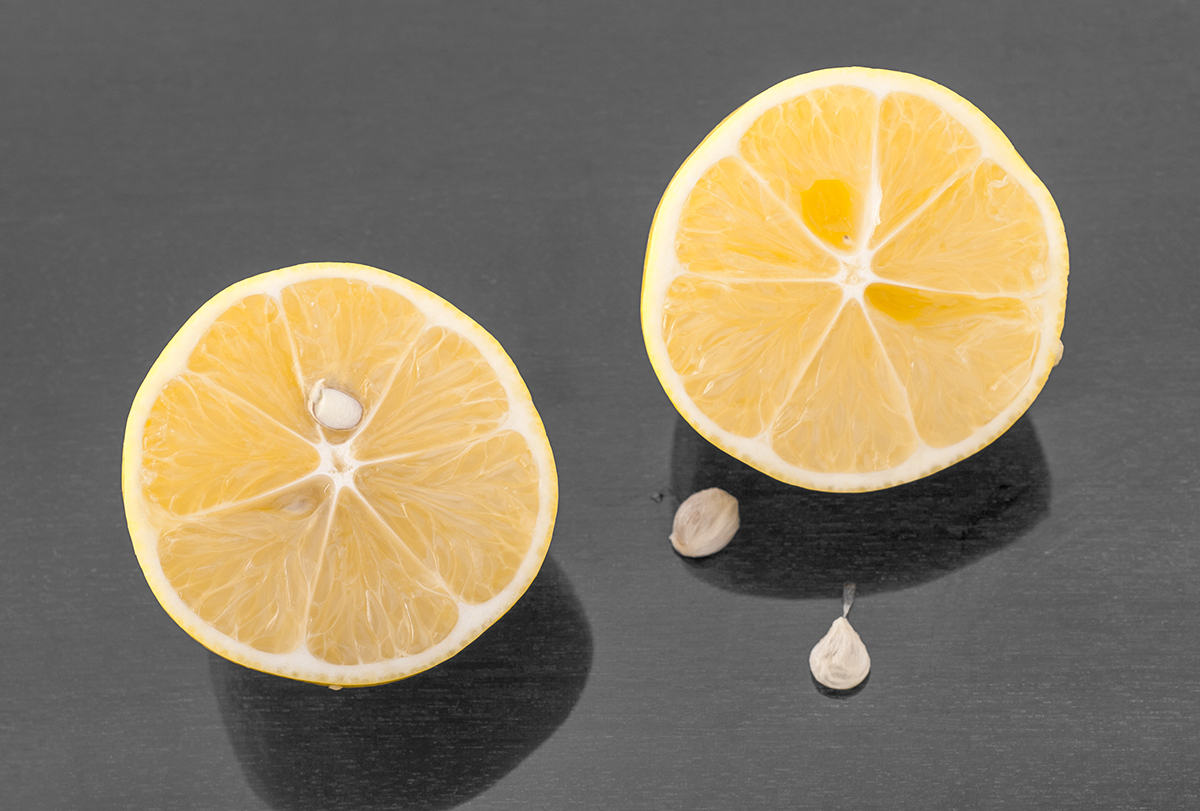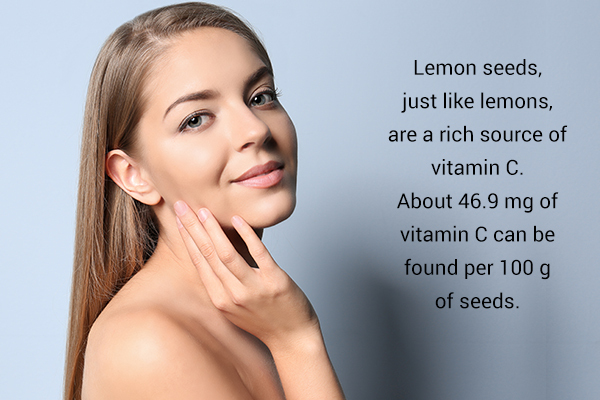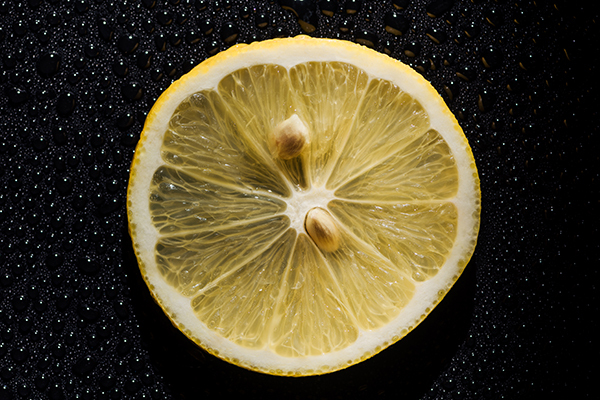In this article:
Lemons are famous for so many reasons. They add great flavor to dishes, are high in vitamin C, bring about relief to the common cold and digestive issues, and help the body fight many illnesses.

But what about the tiny white seeds that are thrown away when a lemon is used? Well, just like the lemon, its seeds are just as beneficial for health.
This article will present some of those benefits, so that the next time you use the bright-yellow fruit, you save its seed!
Health Benefits of Lemon Seeds
Lemon seeds offer the following advantages to health.
1. Provides antioxidant effects
Lemon seeds contain large amounts of flavonoids, limonoids, and dietary fiber. (1) These compounds act as antioxidants in the human body and reduce the damage caused by reactive oxygen species (ROS) that results in chronic illnesses such as cancer, heart diseases, and even complications of diabetes. (2)
In a recent study, lemon seed extract was found to have potential in healing complications of diabetes. It also reduced levels of blood sugar and HbA1c (the amount of free glucose attached to hemoglobin) and improved lipid profile. (3)
Though extensive human trials are still needed, the antioxidant potential of lemon seeds to fight against complications of diabetes cannot be ignored.
2. Helps maintain skin health

Lemon seeds, just like lemons, are a rich source of vitamin C. About 46.9 mg of vitamin C can be found per 100 g of seeds. (4)
Apart from acting as an antioxidant and immunity booster, vitamin C is also great for the skin. It promotes collagen synthesis and protects against UV-induced photodamage.
In some studies, vitamin C also minimized raised scar formation and aided wound healing. (5)
3. Relieves pain
Lemon seed oil has been found to have an analgesic effect by affecting the part of the brain that regulates pain, (6) thus indicating the use of lemon seeds as a pain reliever.
Intense pain is an acute condition and may be due to other conditions. It is not always resolved by natural remedies. Thus, it is vital to seek medical attention and consult a doctor before using anything as a treatment for pain.
4. Fight against infections
Lemon seed extracts may be protective against some types of bacterial, fungal, and parasitic infections. (7)
Candidiasis – a form of infection caused by the fungus Candida albicans – is one of the most common infections when the fungus that normally lives on the skin enters the body and affects the organs. Lemon seeds have been found to have active potential in reducing the growth of this fungus and thereby preventing infection. (7)
In one study, lemon seeds also exhibited some antiparasitic effect through parasite suppression by 39% in mice infected with malaria. (8)
However, more recent and extensive research is needed to establish lemon seed’s usefulness in parasitic infections and to identify the ideal dosage that can be used without being toxic.
5. Improves mood and memory

Lemon seed oil has also been used to enhance the concentration, memory, and mood of learning students. (9)
In a study, the limonene found in lemon seeds was given to mice, and it induced calm by influencing the serotonin and dopamine receptors. (7) Serotonin and dopamine are the feel-good hormones and help in improving mood.
6. Protects against cancer
One of the most researched potentials of lemon seeds is their use in cancer. Extracts of lemon seeds have been shown to prevent the multiplication of cancer cells in breast cancer. They also exhibit some chemoprotective activity. (10)
ALSO READ: Lemons: Health Benefits, Nutrition, and Side Effects
How to Consume Lemon Seeds
- A few lemon seeds (3–5) can be consumed by crushing and boiling them in milk or water.
- Peeling the outer layer of lemon seeds and soaking them in water overnight will soften the seeds. The seeds can then be ground to a paste and used in cooking or drinks.
Precautions to Consider

As a lot of research on lemon seeds is still underway; thus, it is advisable to be cautious in the use of lemon seeds for illnesses. Always keep these things in mind:
- Don’t consume more than 3–5 lemon seeds at one time.
- Some people may be allergic to lemon and should avoid the use of its seeds as well.
- Natural remedies are not replacements for medications, and it is advisable to consult a doctor before adding any natural remedy to the diet for chronic illnesses.
Most-Asked Questions About Lemon Seeds
Are lemon seeds poisonous?
Seeds of stone fruits such as apples, apricots, and plums contain a precursor to cyanide that is toxic to humans in large doses. Seeds of citrus fruits do not have this precursor.
What happens if I accidentally swallow lemon seeds?
There is no harm if you swallowed a few lemon seeds. They will pass through the digestive tract and will be excreted through the stool.
How many lemon seeds can I eat in a day?
As lemon seeds have a bitter taste, it is not advisable to have more than 3–5 seeds a day.
Final Word
Lemons are rich in several antioxidants, flavanols, and limonoids. Just like the fruit, their seeds have a rich antioxidant profile too.
Lemon seeds are useful in lowering some parameters of diabetes, boosting immunity and skin health through their vitamin C content, and treating infections through their antimicrobial and anti-parasitic activities.
It is highly advised not to have more than 3–5 lemon seeds in a day and not to rely on them for the treatment of medical conditions.
- Was this article helpful?
- YES, THANKS!NOT REALLY


